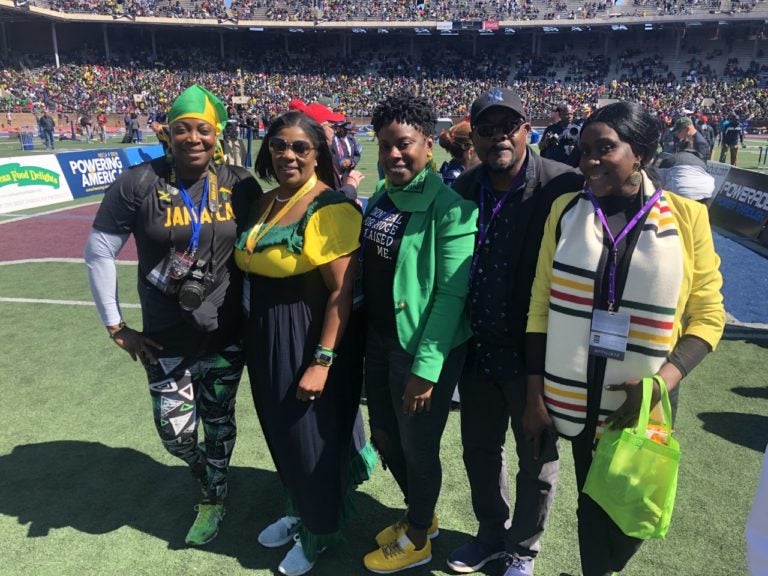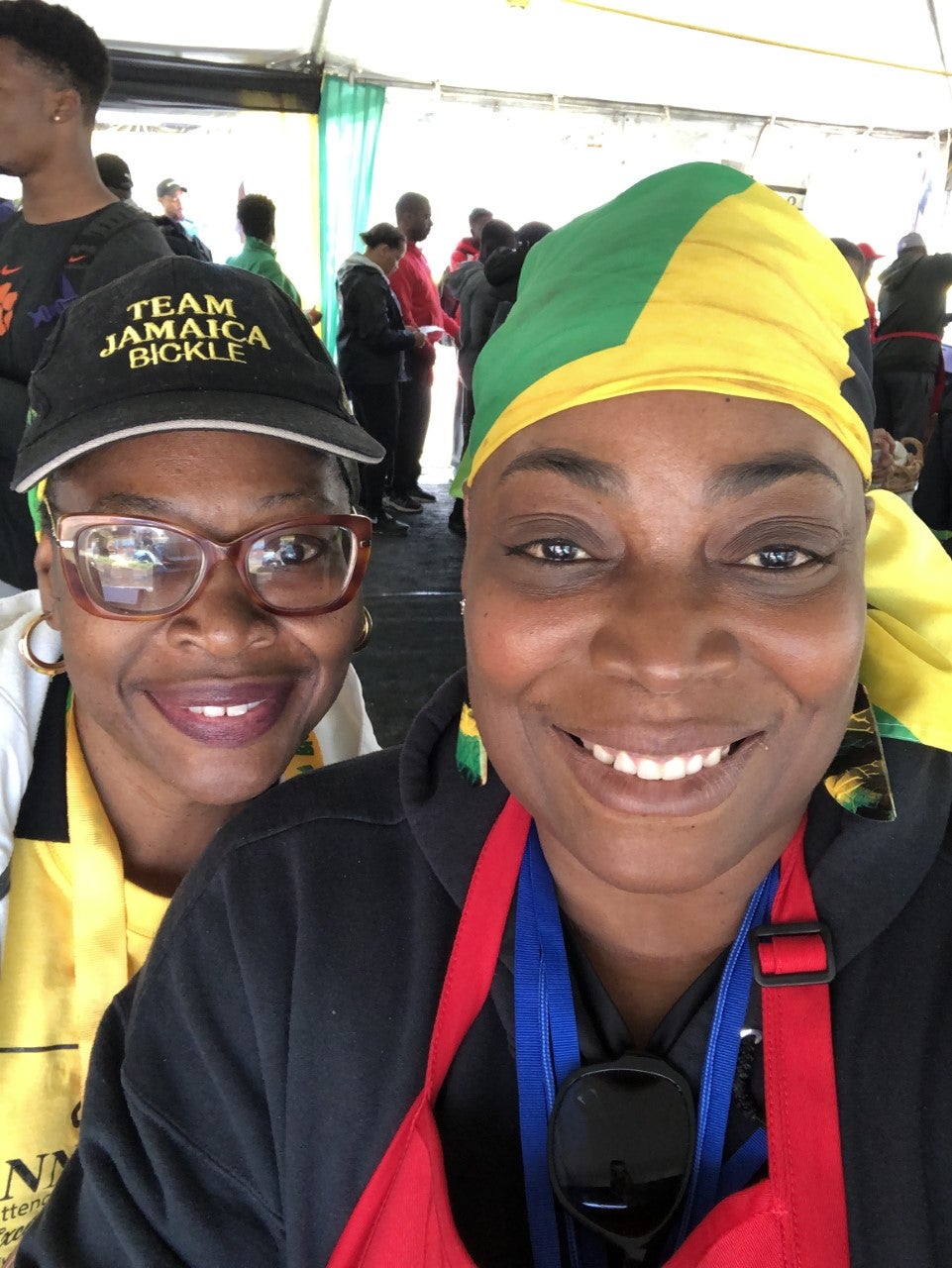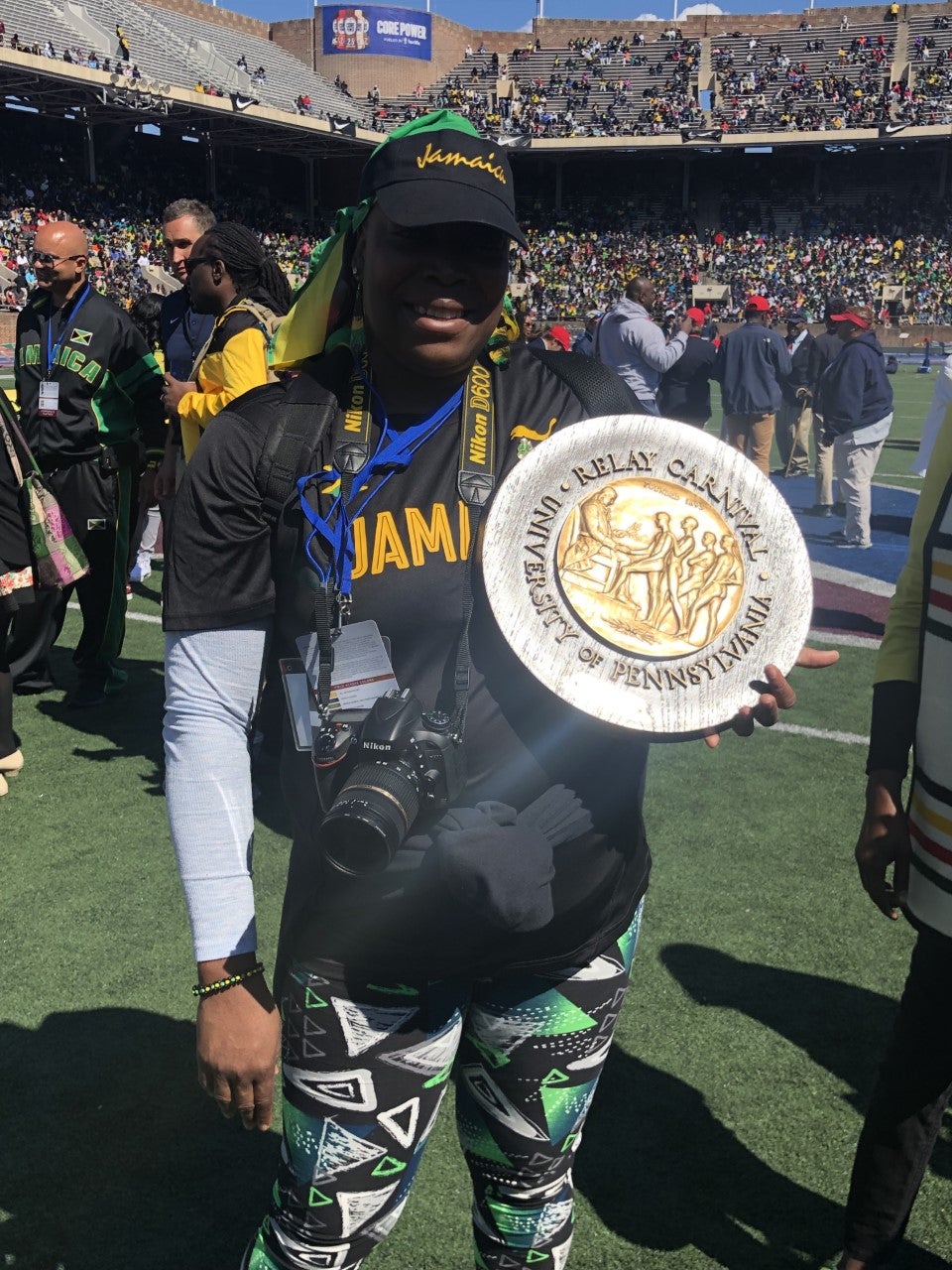The cultural impact of Jamaica exiting the Penn Relays
Jamaica banning its athletes from racing will impact Philly’s economy. But it's also a blow for cultural exchange, writes Andrea Lawful-Sanders.

Andrea Lawful-Sanders with members of Team Jamaica Bickle. (photo provided)
It was the late 1980s when I left my home in Jamaica and relocated to America. My move to the states meant that I was rarely able to see my family and friends. I also wasn’t as connected to the culture. I no longer got to be in the crowded kitchens where ackee and saltfish, a traditional Jamaican dish, was prepared.
In 2009, Charmaine Naut, my friend of 12 years, suggested that I volunteer at the Penn Relays, an annual track and field competition held from Thursday to Saturday in Philadelphia.
Specifically, Charmaine recommended that I work in a food tent, organized by Team Jamaica Bickle, which primarily served the Jamaican athletes.
“You could form a stronger bond with your people,” she told me.
For the last 12 years, I’ve taken three days off from work to chop onions, serve corned beef, and be among the loudest cheerleaders for our stellar athletes.
You haven’t lived until you’ve seen how Jamaicans take over Franklin field with flags and the banging of pots and pans. While our athletes sprint around the track, a chorus chants, “Run bway, run!”

On Tuesday, my world came to a screeching halt.
The Jamaican government announced a travel ban that would prevent its schools from attending the races this April. The decision came one day before the World Health Organization declared the novel coronavirus outbreak a pandemic.
Dr. Christopher Tufton, Jamaica’s Minister of Health and Wellness, said the travel and location “could involve levels of risks that we would like to discourage.”
Jamaican athletes have been included in the Penn Relays since 1964. And they’re among the fiercest competitors.
For example, in 2019, Jamaican women won two relays: the 4×100 and the 4×400. Simply put: Jamaica is the country to beat.

In the aftermath of the bad news, I saw a joke on social media that said: With the Jamaicans now excluded from the Penn Relays, maybe some other teams will finally win medals. As we say in Jamaican Patois — an English-based creole language with West African influences — “yuh tek serious ting mek joke!” Loosely translated, it means “we are joking, but it’s the truth.”
Jamaica preventing its athletes from racing will impact Philly’s economy. But it’s also devastating blow to cultural exchange.
Not only do we serve the young Jamaican athletes, but also runners from different islands, such as Trinidad and Tobago, St. Vincent, St. Lucia, and Barbados.
But during those three days, we are all one. And we learn from each other.
For instance, some of the athletes call fried dumplings “bake,” and others don’t. Many of the athletes prefer condensed milk for their cereal and hot chocolate, rather than skim or 2% reduced fat milk. They say America’s hot chocolate doesn’t have a taste and the condensed milk acts as a sweetener.
This year just won’t be the same. When April 23rd rolls around, I’m going to miss looking into the stands and seeing a sea of yellow, green and black — the colors of Jamaica’s flag.
WHYY is your source for fact-based, in-depth journalism and information. As a nonprofit organization, we rely on financial support from readers like you. Please give today.


![CoronavirusPandemic_1024x512[1]](https://whyy.org/wp-content/uploads/2020/03/CoronavirusPandemic_1024x5121-300x150.jpg)


